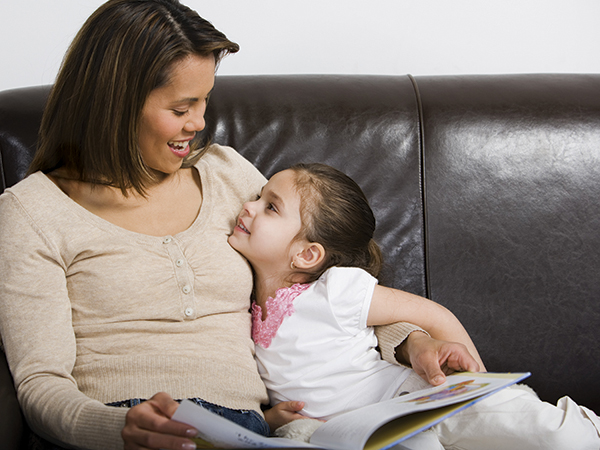
A parent is a child’s first teacher and that’s a role we need to play to near perfection almost all our lives. And the learning begins right from when you bring your newborn home. In fact your home is the child’s first school and the lessons they learn there are deeply ingrained in their psyche and shape their character.
The most valuable gift any child can be given is a secure, stable, loving, and comfortable home environment. This is where the child learns the basic values like respect for parents and others, a love of learning, an appetite for adventure and experimentation and more. Whether we realise it or not the environment we create at home is the one through which our child first sees the world and understands it.
As a child progresses from infancy to adulthood the parent as a teacher has to keep reinventing herself to meet the need of the hour. Our children go through a series of physical, emotional, intellectual, and social developmental milestones and they need their most trusted advisor to help them traverse these tricky paths.
No one knows your child as well as you do and this makes you the best person to help tackle age-appropriate challenges at every stage thereby making them ready for the next level of development.
To start with both parents have a crucial role to play in creating a healthy, secure attachment with the infant. This is a key-factor in the infant’s wellbeing. It creates an optimal foundation for later building blocks of life. Emotional sensitivity is an essential virtue for all parents. This begins with apt responses right from infancy. Your eye contact with your little angel, your body language, the affection and appreciation you show, all go a long way in developing that little brain. Attachment theorists Ainsworth and Bowlby define secure attachment as, “an enduring affective bond characterised by a tendency to seek and maintain proximity to a specific person, particularly when under stress”.
The first three years of a child’s life are the most critical years for brain development. It is a known fact that by the age of three almost 80 per cent of the brain is developed. Lessons learnt during this stage go on to determine the organisational and functional status of the brain.
It also prepares the child to cope with adversity in the later years. Simple and natural lessons taught at home go a long way in making the child school-ready.
These include simple hygiene like brushing and bathing to table manners and play dates with other children, tidying up the room after playing, understanding that ‘no means no’ and so on.
Once routines and rules are established at home the child will find it easier to accept and follow the rules at school. With both parents working it becomes quite a challenge to teach a child everything you’ve read about in books or heard from other parents. Rest easy, you don’t need to spend hours with them to teach them something new.
Just 15 minutes of quality time with your child can be a valuable experience for him. You could indulge in a bath-time game or stack up Lego blocks into fancy towers or have a tea party with dolls.
Talking has a huge impact especially on younger children. It helps in language development and also helps them understand everyday experiences better.
As children grow older your role as a teacher changes. It doesn’t just involve helping them with homework or completing their projects. You learn to listen more and give your tips only when asked for it.
Once your child knows you are genuinely interested in her day she will be a fountain of information. Be ready to laugh at her jokes and anecdotes and cheer her victories and sympathise her failures.
You will be presented with moral dilemmas that your child cannot solve. You may have to give tricky advice about dealing with a close but irritating friend or a jealous one or handling the ire of a teacher.
You will be constantly reminding them about the importance of tidying up their room or not procrastinating when it comes to homework over the weekend.
At every juncture the child has a problem and you need to give the best possible advice or solution because he is going to do the same thing the next time he is presented with a similar problem.
It’s important to be a mindful parent. Sometimes we need to pause and take a moment to study the parenting landscape.
We need to understand that we create our child’s belief system and our lessons need to be well-thought ones, lessons which will be the best for our children.
—[email protected]